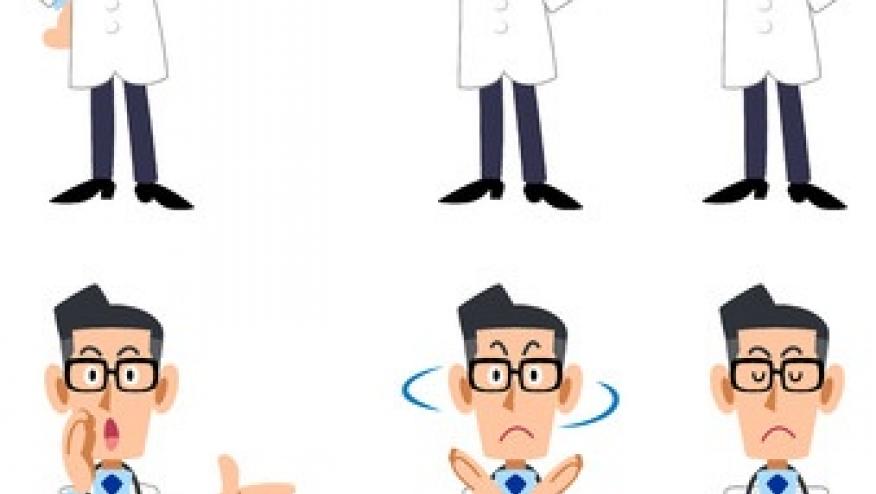The Errors that Underlie 'Medical Errors' in the News Save

Upon reading the title of a recent news item - 'Medical error is the third leading cause of death in the US' - a feeling of apprehension and dread arose. Very quickly, my worst fears were realized.
This story, from the British Medical Journal (BMJ 2016;353:i2139 doi:10.1136/bmj.i2139 published 3 May 2016) immediately went viral, spreading from blogs and tweets, through news feeds, to local television and radio and even to the local newspaper. All of the news seemed to come to a similar conclusion: 'more needs to be done to prevent this epidemic of medical errors'.
The 'article' itself was of very little more substance than the headline; the authors about admit as much. It consists entirely of a very small series of a few tenuous calculations extrapolated to the whole US population, that "..arose from discussions about the paucity of funding available to support quality and safety research relative to other causes of death."
Unsurprisingly, the authors clearly identify themselves as almost certain beneficiaries of such funding, should it materialize, while declaring that they have no conflict of interest.
The feeling of dread relates not to the weaknesses of the paper, but rather how it could be misused.
When the general public hears "medical errors", some may envision a surgeon walking into the OR with golf clubs slung over their shoulder, rushing through a procedure because they cared little, and chopping off a perfectly good leg rather than the leg that needed to be amputated.
Such an image is far from the reality. Consider recurrent decubitus ulcers. With proper care in otherwise generally healthy patients, a decubitus ulcer can be treated and further events prevented. But in the vast majority of cases, it is the substrate. Many patients, beset with myriad profound comorbidities, can be predicted to suffer recurrent bed sores, or catheter infections or other 'medical errors' with the same certainty that flowers will bloom in the spring.
Financial punishment of the hospital in which these 'medical errors' occurred can only result in creative coding at best, or preventative patient dumping at worst. This has been clearly demonstrated in the UK system, when primary doctors are judged by quality outcomes such as the percentage of diabetic patients achieving target HgbA1c; doctors respond by shifting the worst patients out of their care.
That is the reason for the dread over this report. When the call is for 'something to be done', that generally means government intrusion into healthcare. No good can come of that, as government reliably reacts late and then overreacts, often to the detriment of doctors and patients.
What is the proof? I offer three.
First, consider the recent opioid debate. Just over a decade ago, the government was pushing doctors to dispense more pain medications, to alleviate unnecessary suffering of patients with medications that doctors were too afraid to use. This reached the point where license renewal in some states became dependent on 'pain education' (aimed entirely at increasing pain medication use), and doctors who had too many patients with uncontrolled pain faced sanction. Now, the very same people are fighting to outdo themselves about how to 'educate' drug-pushing doctors about their use of these dangerous medicines!
Secondly, consider TJC. No, not the tender joint count, but the Joint Commission. They are the Stasi of healthcare. Unaccountable, omnipresent and omnipotent, their pronouncements send shudders through hospital admistrators. "This is not a drill" declare urgent e-mails from the highest floors of hospital administration offices, "TJC is here; everyone wear their name badge, and abstain from having food or drink next to your computer stations in the hospital". What is the data that the TJC rules are of any benefit? None. Recall a few years ago, TJC mandated that all sharps containers be taken off the wall, and put into cabinets under the sink in exam rooms, only to reverse itself a few years later, and mandate that they needed to go back on the wall. Even their acronym is an ironic epitomization of their naked power; an early initiative of TJC was to forbid doctors from using abbreviations!
The final exam of the potential liability of government gaining even more control of healthcare is the VA. That is another story for another day.
As we consider government control of healthcare, we should recall the words of British theologian C.S. Lewis: "Of all tyrannies, a tyranny sincerely exercised for the good of its victims may be the most oppressive. A robber baron's cruelty may sometimes sleep, but (those) who torment us for our own good will torment us without end for they do so with the approval of their own conscience".
- Anonymous (Name withheld at author's request, since the author is still subject to retribution of the powerful organizations named herein)










If you are a health practitioner, you may Login/Register to comment.
Due to the nature of these comment forums, only health practitioners are allowed to comment at this time.